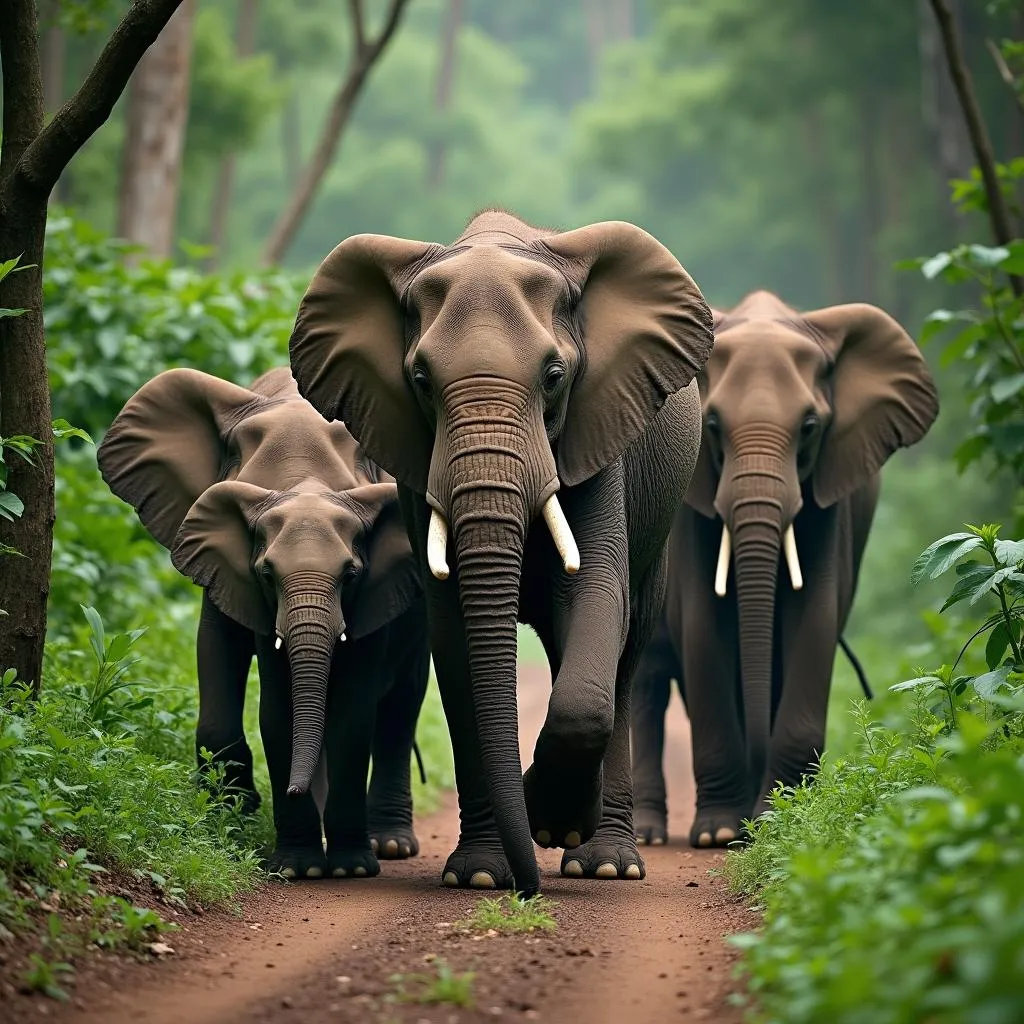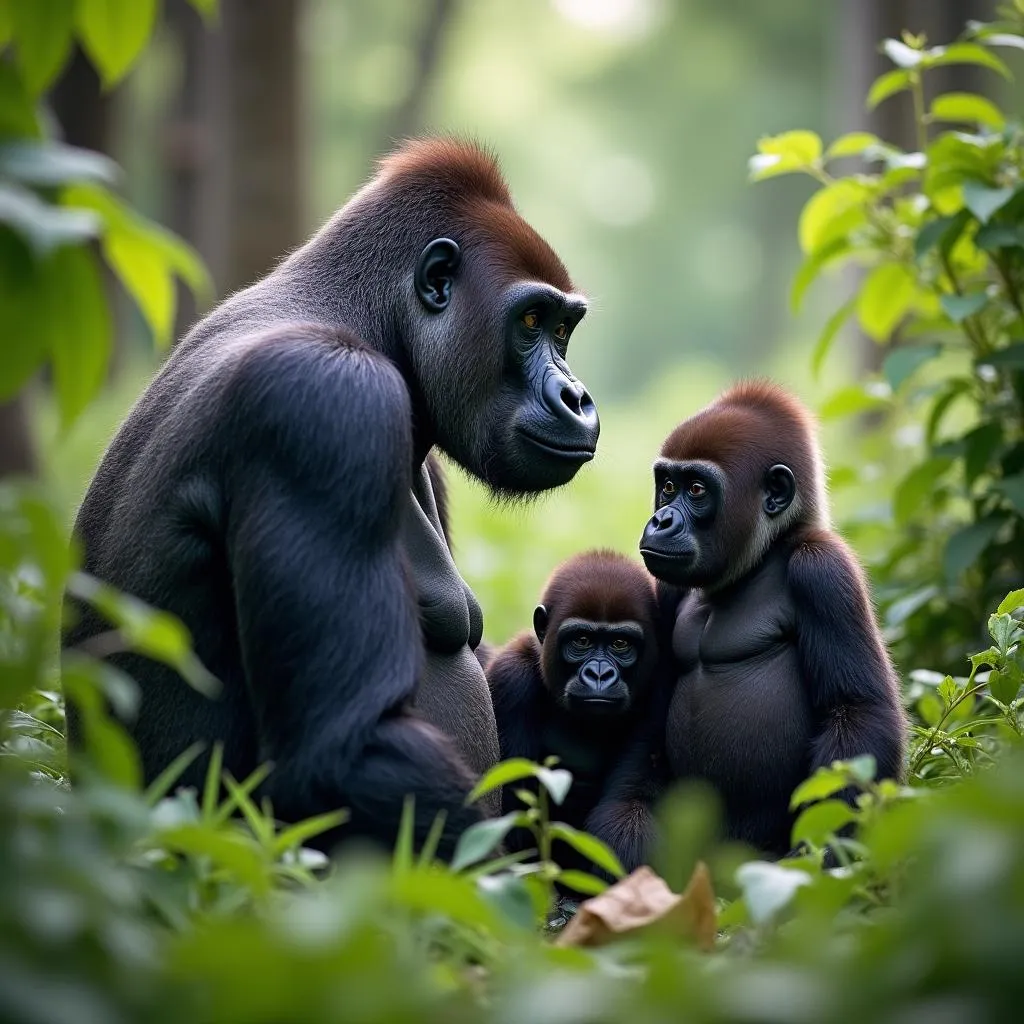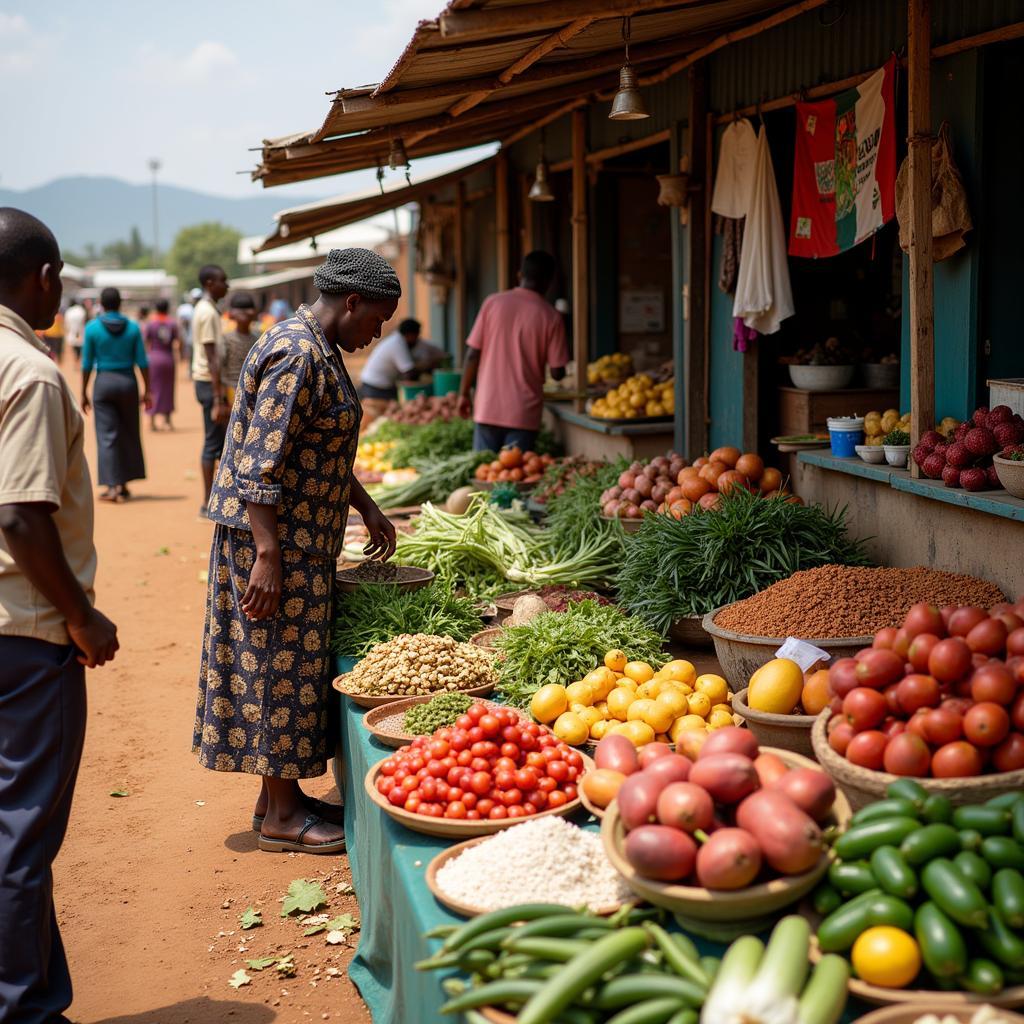Exploring the Wild Heart of Africa: Unveiling the Majesty of African Jungle Animals
The African jungle, a tapestry woven with vibrant life, echoes with the calls of some of the world’s most fascinating creatures. From the powerful roar of the lion to the trumpeting call of the elephant, “African Jungle Animals” represent a captivating blend of power, grace, and resilience. This exploration delves into the heart of the African wilderness, uncovering the secrets of these incredible animals and their vital role in this intricate ecosystem.
A Kaleidoscope of Creatures: Diversity in the African Jungle
The African jungle is not a singular entity, but rather a mosaic of diverse habitats. From the dense rainforests of the Congo Basin to the lush jungles of Madagascar, each region boasts its own unique collection of animal inhabitants. This incredible biodiversity is part of what makes the African jungle such a captivating subject of study and fascination.
Iconic Inhabitants: Beyond the Savanna
While often associated with the open savanna, many iconic “African jungle animals” actually thrive in jungle environments.
- African Forest Elephants: Smaller than their savanna counterparts, these elephants are superbly adapted to navigate the dense jungle, playing a critical role in seed dispersal and creating clearings.
- Okapi: Often referred to as the “forest giraffe,” this elusive creature, with its zebra-striped hindquarters, is a testament to the jungle’s ability to foster unique evolutionary paths.
- Gorillas: These gentle giants, residing in the rainforests of Central Africa, share a surprising amount of DNA with humans, highlighting our interconnectedness with the natural world.
 African Forest Elephant Family
African Forest Elephant Family
Predators in the Shadows: Masters of Stealth and Strategy
The African jungle is also home to a variety of predators, each with its own unique hunting strategies honed by evolution.
- Leopards: These solitary cats are masters of camouflage, their spotted coats blending seamlessly with the dappled light of the forest floor. Their powerful build allows them to haul prey up trees, keeping it safe from scavengers.
- African Wild Dogs: While not strictly jungle dwellers, these highly social animals can be found in forested areas on the fringes of their range. They hunt in packs, using coordinated movements to bring down prey much larger than themselves.
- Gaboon Viper: One of the largest vipers in the world, the Gaboon viper relies on its incredible camouflage and potent venom to ambush unsuspecting prey.
A Symphony of Life: The Interconnected Web
The true wonder of the “African jungle animals” lies not just in their individual characteristics but in the way they interact to create a delicate balance within the ecosystem. From the smallest insects to the largest mammals, each creature plays a vital role in the intricate web of life.
Threats to a Fragile Paradise: Understanding the Challenges
The incredible biodiversity of the African jungle faces numerous threats, many stemming from human activity.
- Deforestation: The clearing of land for agriculture, logging, and mining leads to habitat loss and fragmentation, pushing many species towards the brink of extinction.
- Poaching: The illegal wildlife trade continues to devastate populations of iconic animals like elephants and gorillas, driven by demand for ivory, bushmeat, and traditional medicine.
- Climate Change: Altering weather patterns and increasing temperatures are already impacting the delicate balance of the jungle ecosystem, with potentially devastating consequences for its inhabitants.
 African Gorilla Family Resting
African Gorilla Family Resting
Conservation: Protecting Africa’s Wild Heart
Protecting the “African jungle animals” and their habitat is not just a matter of preserving biodiversity, but also a crucial step in mitigating climate change and ensuring the well-being of local communities who rely on the ecosystem services the jungle provides.
- Supporting Sustainable Practices: Promoting responsible tourism, sustainable agriculture, and ethical sourcing of forest products can help alleviate pressure on the jungle and its inhabitants.
- Empowering Local Communities: Engaging local communities in conservation efforts, providing alternative livelihoods, and raising awareness about the importance of protecting their natural heritage is essential for long-term success.
- Combating Wildlife Crime: Strengthening law enforcement, disrupting trafficking networks, and reducing demand for illegal wildlife products are critical steps in curbing poaching and the illegal wildlife trade.
Unveiling the Wonders: Frequently Asked Questions
1. What is the difference between a jungle and a rainforest?
While often used interchangeably, there are subtle distinctions. Rainforests typically receive more rainfall and have a denser canopy than jungles.
2. Are there lions in the African jungle?
Lions are primarily savanna dwellers and are not typically found in dense jungle environments. However, they may venture into forested areas on the fringes of their range.
3. What is the most dangerous animal in the African jungle?
This is subjective, but the hippopotamus is often considered one of the most dangerous due to its aggressive nature and unpredictable behavior.
4. How can I help protect African jungle animals?
Supporting conservation organizations, making responsible choices as a consumer, and raising awareness about the plight of these animals are all meaningful ways to contribute.
Continuing the Exploration: Discover More About Africa’s Wildlife
- For a closer look at the powerful “African beast,” delve into this captivating article.
- Explore the incredible migration patterns of the “African elephant” and the challenges they face here.
The “African jungle animals” are a testament to the power and beauty of the natural world. By understanding the challenges they face and supporting conservation efforts, we can help ensure that these magnificent creatures continue to thrive for generations to come.
Need help planning your African adventure? Contact us!
Phone: +255768904061
Email: kaka.mag@gmail.com
Address: Mbarali DC Mawindi, Kangaga, Tanzania.
We have a 24/7 customer support team ready to assist you.




